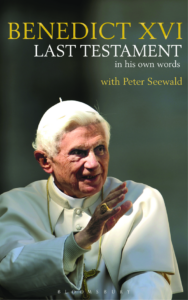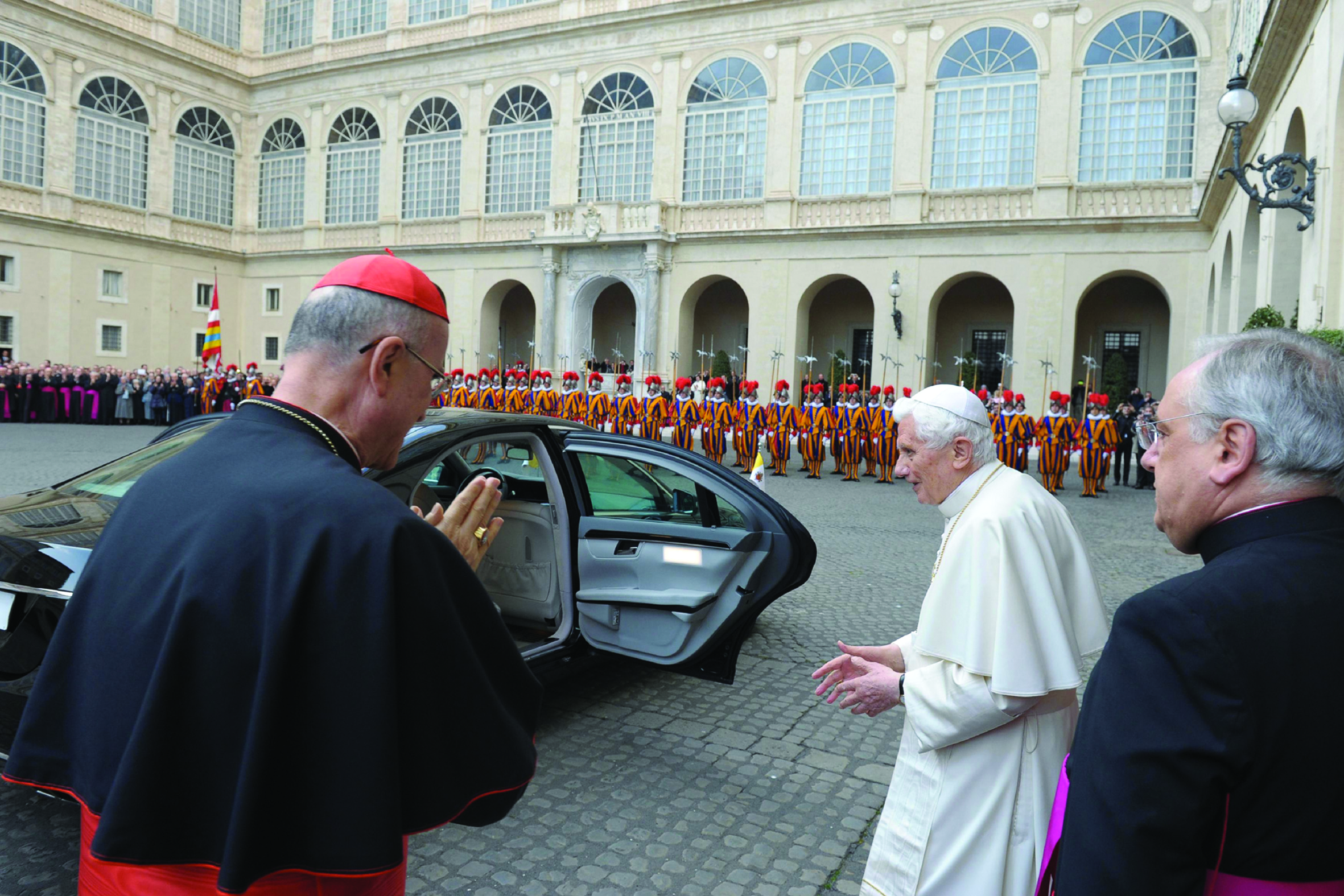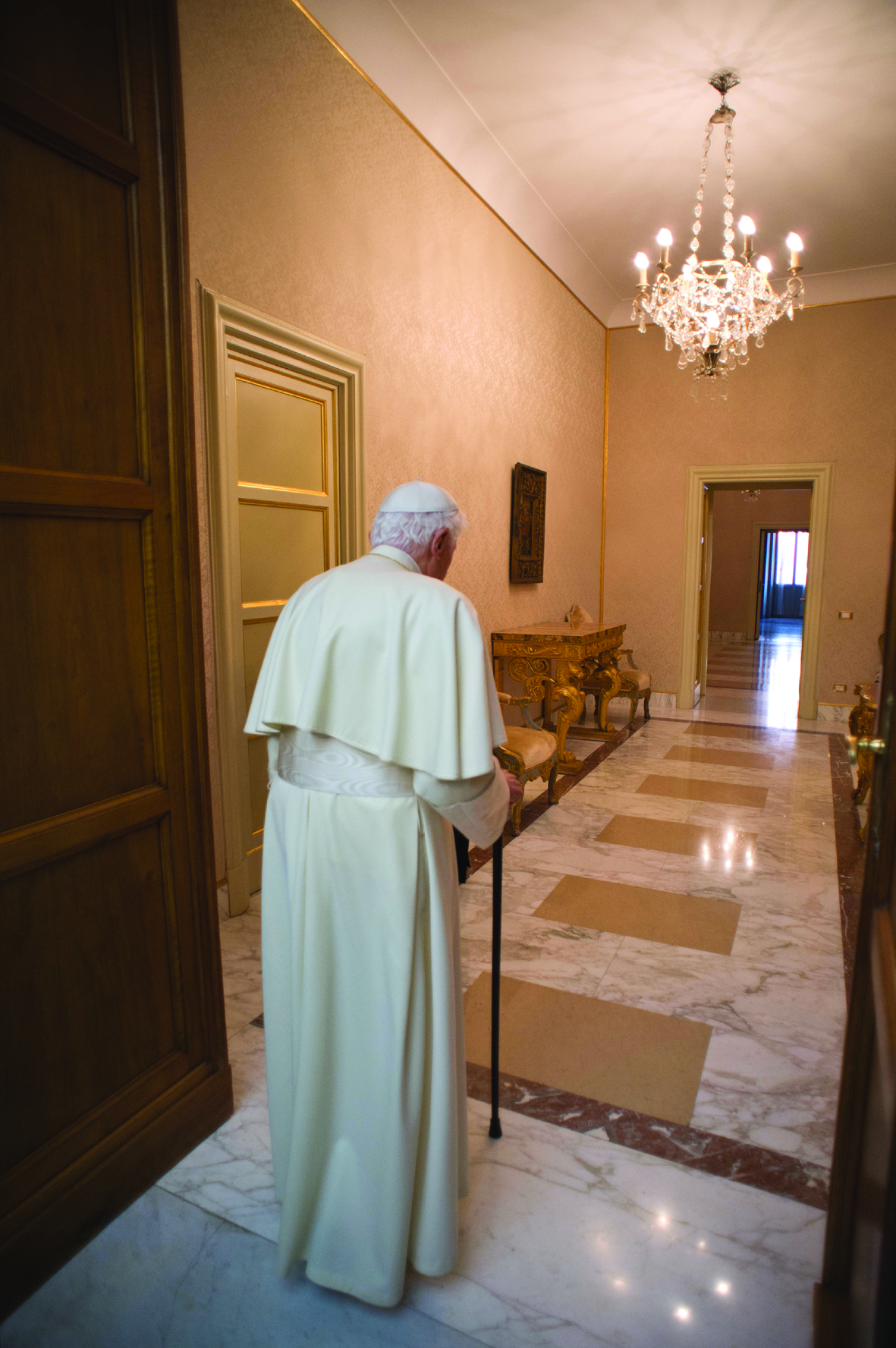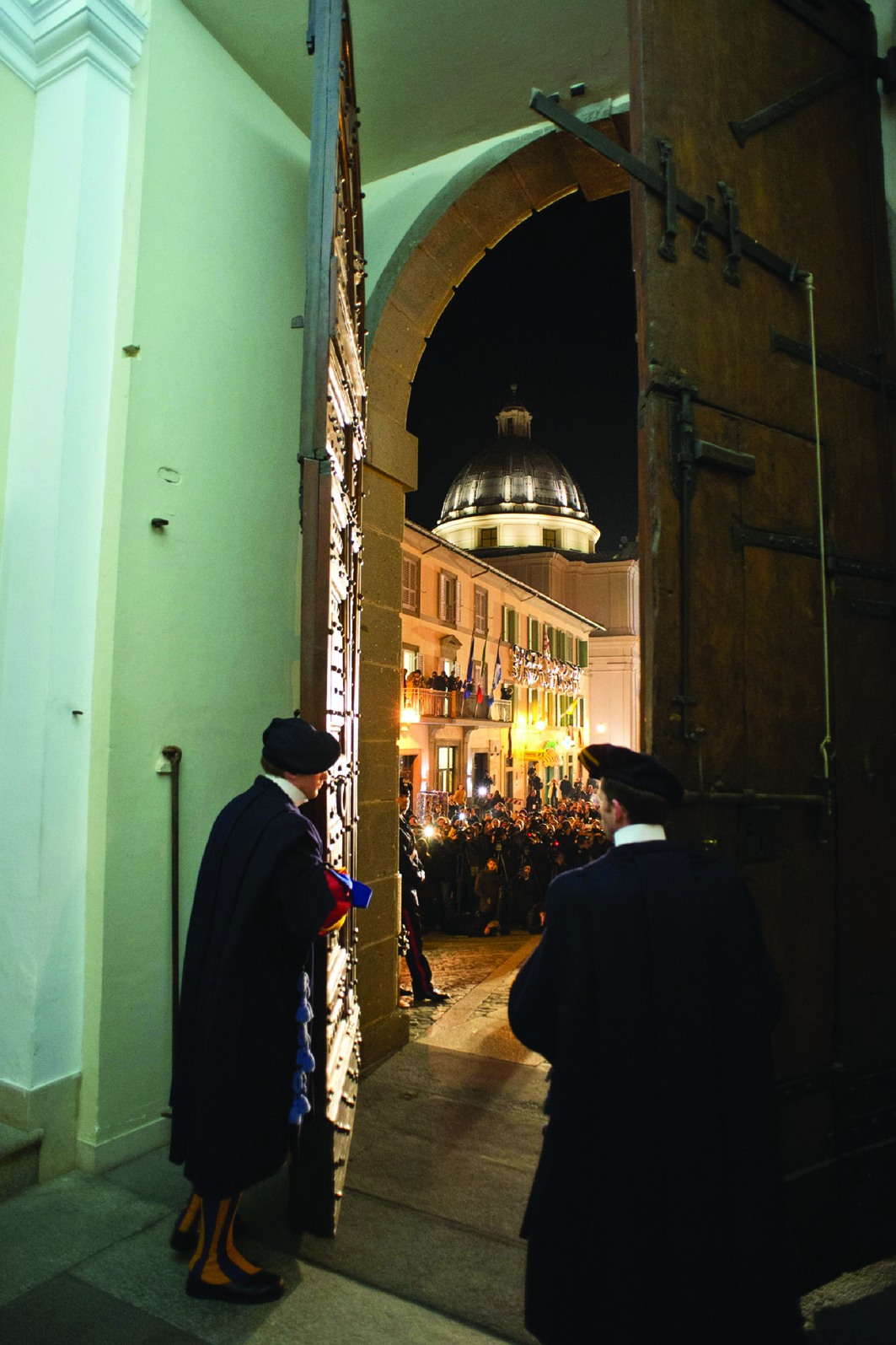“You talk about it extensively with the loving God”
I n this interview with author and papal biographer Peter Seewald in the 2016 book, Last Testament: In His Own Words, Pope Emeritus Benedict XVI explains some of the circumstances and motivations concerning his resignation.
n this interview with author and papal biographer Peter Seewald in the 2016 book, Last Testament: In His Own Words, Pope Emeritus Benedict XVI explains some of the circumstances and motivations concerning his resignation.
Peter Seewald: Now we come to that decision which in itself already makes your pontificate seem historic. Your resignation was the first time a genuinely ruling pontiff had stood down from his office. …
Pope Emeritus Benedict: ‘Light of the World’… to examine yourself before God and before yourself.
Had you judged that your decision was also a disappointment, something that would cause bewilderment?
Intense… they were stopped in their tracks at my news. … at that moment they were really distressed and felt forsaken.
Did you take into account the shock it would cause?
I had to accept it, yes. They know that my hour had passed and I had given all I could give.
When was your mind made up?
I would say during the summer holiday of 2012.
In August?
Thereabouts, yes.
The doctor also said to me that I could not fly over the Atlantic again. As scheduled, World Youth Day was supposed to be in Rio in 2014. Because of the football World Cup it was brought forward by one year.
How does one manage to reach and carry out a decision of this importance without anyone to talk with about it?
You talk about it extensively with the loving God.
Only four people had been confided in. Was there a reason for this?
Yes, of course, because the moment the people knew, the mandate would crumble, since its authority disintegrates then.
When and by whom was the text of your resignation speech written?
By me.
Why in Latin?
Because you do something so important in Latin.
11 February; Rose Monday, feast day fo Our Lady of Lourdes…How do you remember that historic day?
…it was a new and tremendous step… I wrestled with it inwardly the whole time…
That morning? As a normal morning?
…I would say so, yes.
The same prayers?
The same prayers … Around seventy cardinals in the Sala del Concistoro …
The astonishment began as you started to speak in Latin: “Dearly esteemed cardinals, I have not gathered you together only to let you participate in the canonizations, but I also have something of great importance to tell you.” After the consistory the Pope goes out solemnly… On this day, about which historians still write, what was going through your head?
The question: “What will mankind be saying as I stand there?”… I brought myself before the Lord in a particular way throughout the day.
In the resignation speech… the diminishing of your energy…
The successor of Peter… is not merely a function… Then again, the Pope must do concrete things, must keep the whole situation in his sights, must know which priorities to set, and so on… there remain so many things which are essential, that, if the capability to do them is no longer there…
Cardinal Reginald Pole (1500-58), to whom you referred in a lecture, says in his theology of the cross: “The cross is the authentic place of the representative of Christ.”
The Pope must each day bear witness, must take up his cross each day and always be a martyr, in the sense of being a martyr to the sufferings of the world and its problems.
My predecessor Pope John Paul II… for 20 years bore the weight and the suffering

February 28, 2013. Italian Cardinal Tarcisio Bertone, left, gestures as Pope Benedict XVI leaves the Vatican for Castel Gandolfo, Italy (CNS photo/L’Osservatore Romano via Reuters)

February 28, 2013. Pope Benedict XVI retires to the apartment at his summer residence in Castel Gandolfo, after appearing for the last time on the palace balcony (CNS photo/L’Osservatore Romano via Catholic Press Photos)

8 p.m. Feb. 28, 2013. Members of the Swiss Guard close the main door of the papal villa (CNS photo/L’Osservatore Romano)






Facebook Comments